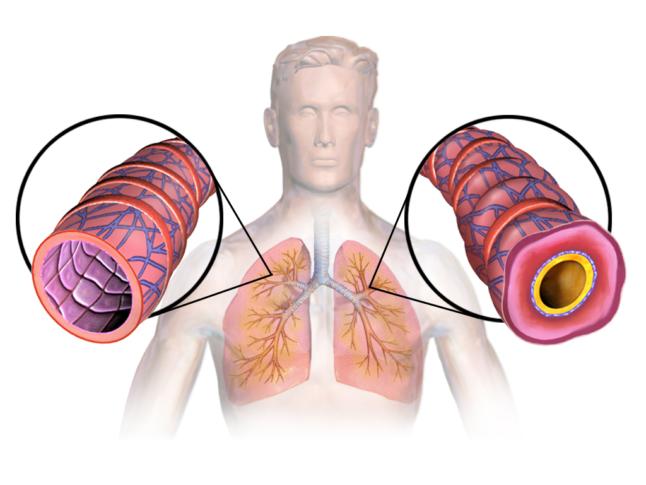Knowing which medication is right for you can often be a confusing and overwhelming process. The specific type of asthma medication you require will likely depend on your age, the severity of your asthma and the symptoms you are experiencing. If you need to change your asthma medication prescription, we’ve broken down five of the most common asthma medication options available:
Inhaled Corticosteroids
This anti-inflammatory drug is one of the most common and most effective medications for the long-term management of asthma and its associated symptoms. Corticosteroid acts by reducing swelling and the tightening of airways. While there are no serious side effects of inhaled corticosteroids, it has been known to slightly delay growth in children. If you are considering the use of inhaled corticosteroids for your child, be sure to consult your doctor first.
Related Topics (Ads):
Medication for Allergy Triggered Asthma
If your asthma is caused by seasonal allergies, an allergy shot could be a simple solution to prevent the onset of an asthma attack. Generally, you will need to get injections once per week for at least two months and, following this, once a month for three to five years. These allergy shots will assist in ‘immunizing’ you against your allergies over time and thus will help to prevent further asthma attacks. If you only experience moderate allergy symptoms, you can manage the effects with common anti-allergy medications such as antihistamines or decongestants.

Theophylline
Theophylline medication is a type of bronchodilator that is used to treat mild asthma symptoms. Theophylline is formulated as a pill and should be taken once a day. After you take a theophylline pill, the drug relaxes your airways and limits stimulant responses to irritants in your lungs. Unfortunately, some asthma sufferers experience insomnia or gastroesophageal inflammation as side effects from taking theophylline.
Long-Acting Beta Agonists (LABAs)
LABA medication is usually reserved for individuals with moderate-to-severe asthma symptoms. When taken with an inhaled corticosteroid, LABA medication will maintain an open airway and promote swelling reduction for approximately twelve hours.
In-Progress Medication
Drugs that provide relief for an ongoing asthma attack are known as in-progress or rescue medications. The two most effective in-progress drugs are albuterol and levalbuterol.
Related Topics (Ads):









